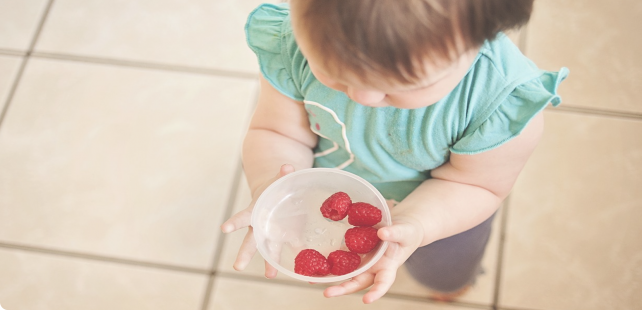I-LABS scientists (Barragan, Brooks, & Meltzoff) published a paper on baby altruism. They found that infants help others even when that involves giving up things of value to themselves (Scientific Reports, 2020 ). The researchers also highlight social learning experiences at home that predict baby altruism. TIME magazine (Oct. 2020) featured this work in a special edition on “The Power of Kindness.”
National Academy of Sciences Issues Early Childhood Call To Action
The National Academy of Sciences issues Briefs only when scientific consensus on a topic is overwhelming. I-LABS has contributed to a body of research that has met that standard. The Academy has just issued a Brief about early childhood education that confidently states four findings: Early education improves lives. Access to early education is not equitable, and those children most … Read More
I-LABS Research Sheds Light On Children’s Race and Gender Identities
The current national conversations about race are both necessary and difficult. It is important to anchor these conversations in what we know about children’s development. Former I-LABS researcher Onnie Rogers, now a faculty member at Northwestern University, and I-LABS co-Director Andrew Meltzoff investigated the origins of children’s race and gender identities. The research was originally published in Cultural Diversity and Ethnic Minority Psychology. Read that article here. … Read More
Communication Skills Predict Programming Aptitude
Modern programming languages have vocabulary and grammar, just like natural languages. This observation led I-LABS researcher Chantel Prat and her team to suspect that language skills might be a better predictor than math skills of the ability to learn programming. Her research showed that it was. These findings have profound implications for how programming languages are taught. The research was … Read More
Altruistic Food Sharing in Infants
Researchers at I-LABS published a study showing that infants act altruistically, sharing food with unfamiliar people. This is true even when infants are hungry. This behavior demonstrates that infants systematically override their biological drive in order to engage in prosocial, helpful behavior. I-LABS co-authors Barragan, Brooks, and Meltzoff published their work in Scientific Reports (part of the Nature publishing group). … Read More
Parent Coaching Advances Infant Language Development
Parentese is a style of speech that parents often use with their children. It has a slower tempo with higher pitch and exaggerated sounds, and it helps children learn language. Now I-LABS researchers Naja Ferjan Ramirez, Sarah Lytle, and Patricia K. Kuhl have shown that coaching parents in Parentese helps them use it more often. This leads to improved language … Read More
New Research on Second Language Acquisition
I-LABS has created an online program that trains teachers to help infants learn a second language. The new study demonstrates that the play-based program is effective in teaching young children from a wide variety of backgrounds. Because trainers learn the program online, the training is scalable and widely available. Naja Ferjan Ramírez, assistant professor of Linguistics and former I-LABS research … Read More
Deaf Infants Have Accelerated Gaze Following
Researchers and colleagues at I‐LABS published the first study of gaze following with Deaf infants of Deaf parents. The results show that Deaf infants had enhanced gaze following in comparison to hearing infants of the same age and gender. This suggests that Deaf infants pay special attention to social-communicative cues of other people due in part to exposure to sign language. The … Read More
Linguistic Diversity Promotes New Language Learning
LABS post-doc Kinsey Bice has shown that living among many languages may help monolinguals when they begin learning a second language. This research used EEG to show that the brains of monolinguals who were exposed to foreign languages responded differently to novel foreign words. The research was published in the Brain and Language journal as well as Tech Explorist and UW News. Read the research … Read More
Brain Interface Technology Moving Forward
I-LABS scientists, along with UW colleagues, are once again producing cutting edge research. I-LABS members Andrea Stocco, Chantal Prat, Darby Losey, and Justin Abernethy have been advancing research in brain-to-brain communication. In their latest study, three people played a video game using only their minds. The ground-breaking results were published in Scientific Reports. Read more at the UW Today or KOMO News.

